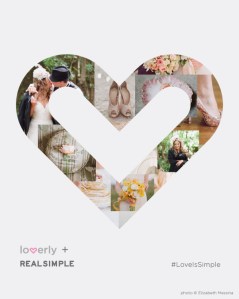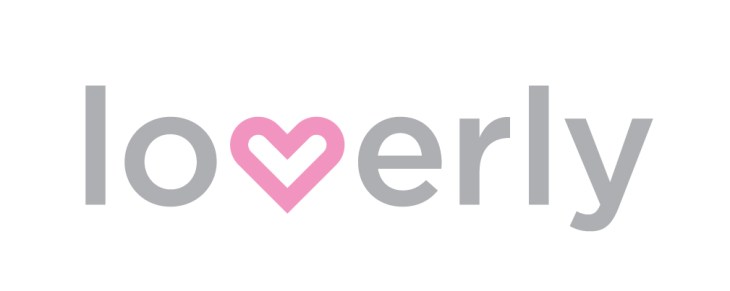Lover.ly, a search engine for all things wedding, is today making a move that will broaden its reach considerably: The company is announcing a partnership with Real Simple to power the content for the site’s first-ever online weddings channel. Real Simple, which is best known for its magazine about home decor, beauty and fashion (it’s like an offline version of Pinterest), will now be helping to sell Lover.ly’s advertising inventory as a part of this deal.
For those unfamiliar, Lover.ly launched in fall 2011, as a centralized place for brides to discover and save wedding ideas and inspiration, and then received $500,000 in seed funding last February. Similar to Pinterest, the site lets its users create boards (on Lover.ly, they’re called “bundles”) to keep track of their favorites. But as founder and CEO Kellee Khalil explains it, Lover.ly is more of a search engine than it is a “Pinterest for weddings,” so to speak.
Lover.ly’s content comes from 35 prominent wedding bloggers, a handful of wedding magazines like Bridal Guide, Southern Weddings, Smitten Magazine and others, plus retailers, brands and vendors. By participating on Lover.ly, these sources can grow their traffic and/or sales, while bloggers can score brand partnerships and get help with advertising.
 Khalil says Lover.ly’s content, which has grown to include over 700 brands, and its brand, is what appealed to Real Simple. The company came to her a few months ago to discuss a potential partnership after a Real Simple editor listened to her speak on a panel about wedding and technology, she says. “Real Simple approached us and said your brand is very similarly aligned with ours – we’re trying to help the modern women who’s overwhelmed, make her life easier, and bring simplicity,” Khalil explains.
Khalil says Lover.ly’s content, which has grown to include over 700 brands, and its brand, is what appealed to Real Simple. The company came to her a few months ago to discuss a potential partnership after a Real Simple editor listened to her speak on a panel about wedding and technology, she says. “Real Simple approached us and said your brand is very similarly aligned with ours – we’re trying to help the modern women who’s overwhelmed, make her life easier, and bring simplicity,” Khalil explains.
The partnership is expected to be mutually beneficial to all parties involved – Lover.ly and its content providers get wider exposure and traffic, and Real Simple gets the content it needs for the new vertical, plus relationships with key bloggers.
There’s also an advertising relationship going into effect as a part of the deal. Currently, Lover.ly monetizes by display ads, as well as sponsored content and giveaways across its network. Meanwhile, with retailers and brand partners, it’s a cost-per-click system. With the exclusive partnership announced today, Real Simple will provide the startup with access to its sales team to help Lover.ly fill its ad inventory.
“We just soft-launched our network halfway through last year, so this is the first partnership of its kind,” says Khalil of the deal. “Real Simple (Time, Inc.) is one of the biggest media companies in the world, and I think it’s really forward-thinking of them to partner with a startup that’s a year-and-half old,” she adds.
What’s Next: A Relaunch Of The Website And Mobile Apps
The deal with Real Simple isn’t Lover.ly’s only news, however. The startup is poised for a complete overhaul and relaunch of its website and brand, following nearly a year of tracking its user data and behavior.
“We’re launching a brand-new property from start to finish,” says Khalil. “We had to look at our brand, what it stands for, and how it’s going to translate over time. We’re leaning towards becoming a lot more sophisticated, more modern and more tech-centric. And with that, we’re also going to be launching a mobile app,” she says. The new app will focus on a more passive browsing experience, and will add a feature that will allow brides to “snap” inspiration while on the go in order to save things to their private boards. These launches are still a few weeks out.
Asked what it means to be more of a “tech” company, Khalil explained that the technology they’re building in-house is something that can translate across different verticals. “We actually don’t produce any content; our core competency is aggregating from bloggers, retailers, brands and also wedding professionals,” she says. The proprietary technology Lover.ly has developed is a tagging system that makes that content searchable. That means users can search by a range of things beyond keywords — for example, by season, style, location, color palette, themes or trends. The site even features a unique color search interface that lets brides-to-be click on a color to search across the site by pinks or silvers, or whatever their wedding colors happen to be.
Today, Lover.ly’s search engine has indexed a couple hundred thousand wedding photos, while the site also offers close to 100,000 products. “Think of us like what Kayak has done for travel…that’s essentially what we are [for weddings],” says Khalil. She says the new Lover.ly website will shift focus to the company’s search capabilities, making the search box more prominent, while also moving away from the more “girly” feel the site has today.
Eventually, the company wants to apply its curated search functionality to other verticals, including perhaps home decor, party planning, shopping, or anything that’s design-focused. “There’s definitely opportunity to go into other verticals, and that’s always in the back of our head when we’re thinking about what we’re doing,” Khalil says.
The company declined to provide user numbers, but reports recent growth and good engagement figures. Five percent of the audience returns 3-6 times per day, while 22 percent come anywhere from 15 to 100 times per month. Somewhat surprisingly, 48 percent of the audience reports themselves as “pre-engaged” – meaning they’re women who are planning their wedding in advance of an actual proposal. Site visits are also up 75 percent month-over-month from last month, and Lover.ly has grown its social footprint to nearly 80,000 Facebook fans, 28,000+ Twitter followers, and 34,000 followers on Google+.
Competition in the weddings space is tough lately, given the number of startups angling for brides’ attention, including, but not limited to, RegistryLove, Appy Couple, Wedit, WedPics, Wedding Party, WeddingLovely, Weduary and others, not to mention Pinterest. But not all these are focused on search, of course – many are social apps or wedding website providers. Khalil says with Lover.ly, she wants to become the “Google for weddings.” That could make other wedding startups potential partners, instead of competitors further down the road.

